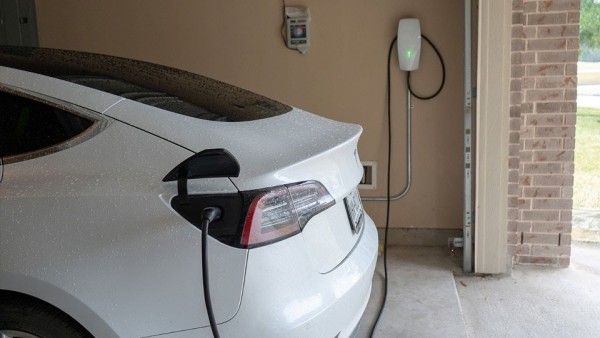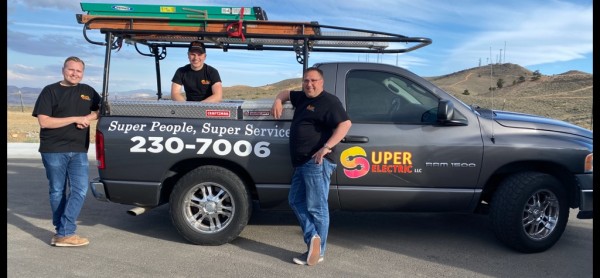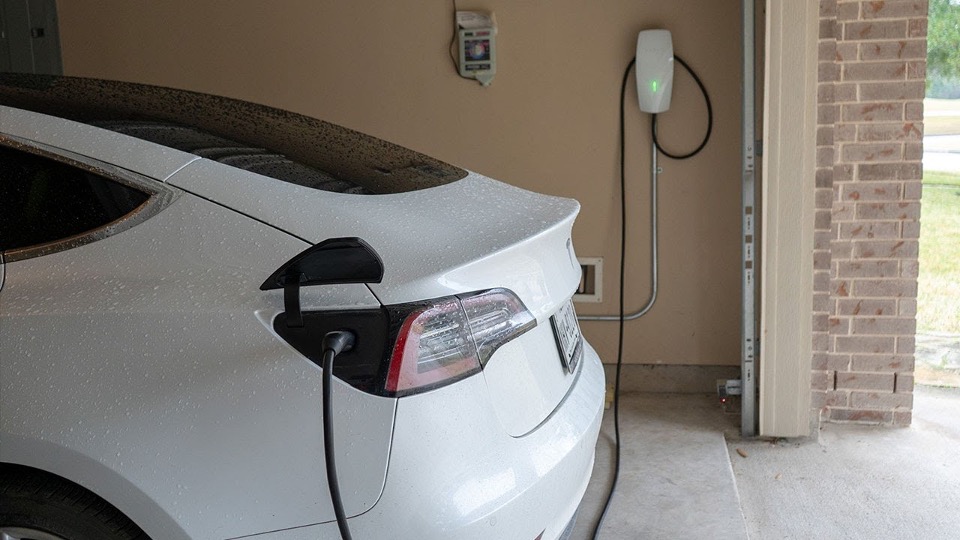The Electric car market is rising in 2022 and in 2023. As of 2019 there are over 1.18million electric vehicles in the United stats. For all of the people buying electric cars the first step is to install an electric vehicle charger. If looking into installing an electric car charger in at home, it is convenient and way simple. 4 things to know about installing an EV Charger at home.

#1 How an electric vehicle charger works
Before install this advanced technology at home it is important to understand how it works. In reality, a home charging station dosen’t actually charge the car. How it works is that it provides home’s alternation current to the car’s on-board charger, then it converts it to direct current and stores it in the battery. Depending on the charging station available it will support different speeds of charging. It’s important to see the options to make sure it will have the power needed at home.
#2 Different types of chargers
Three different level chargers in the market. Level 1 and level 2 chargers are the best for residential installations. On the other hand level 3 chargers are very high-voltage and very fast-charging stations. It can be very expensive and are not really well-suited to be used at home. Additionally, the use of a level 3 charger can damage the electric vehicle’s battery.
The best option to install at home is a level 1 charger. It plugs into a traditional 120-volt outlet, making it really easy to just plug in the car and charge it at home. However, if the voltage level is low your charging can take much longer, up to 20 hours for a full charge. This charger is best for just adding a charge to the battery and not necessarily a full charge
On the other hand, a level 2 charger requires a 240-volt outlet and it provides up to 32 amps. This means that it can provide a full charge 5 times faster than a level 1 charger.
When choosing a charger you need to consider the type of car, and how often it is driven, and how quickly the battery will take to charge.
#3 The cost of electric vehicle chargers
Think about the cost of a charging station but the cost of electricity as well. The National average price of electricity is about 13.3 cents/kwh. So that would mean fully charging an electric vehicle with an empty battery would cost about the same as having the air conditioner working for six hours.
#4 DIY vs Professional Installation
Another important thing to think about is how to go about the installation. Some people choose to DIY the installation and depending on what type of charging station is choosen, it is absolutely possible.
On the other hand, some charging stations really need a professional installation. Hire an expert electrician to handle everything.

From having all the Necessary equipment to guaranteeing the new electric vehicle charger works properly after installation.
An installation from a professional electrician includes:
* Installation of the electric vehicle charter
* A 240-volt circuit breaker
* Full testing of the charger
* Special training on how to use it once installed

Super Electric is located in the Reno, Sparks area. For more information, call (775)230-7006.
Media Contact
Company Name: Super Electric LLC
Contact Person: Terry Thom
Email: Send Email
Phone: 17757710453
Address:1875 FLINT SPRINGS CT
City: SUN VALLEY
State: NV
Country: United States
Website: https://www.superelectricnv.com/

